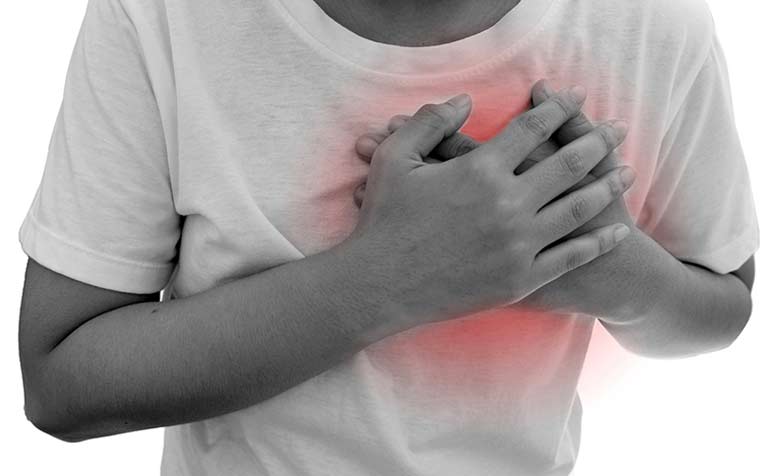
Don't ignore the chest pain that suddenly hits you while at rest or during walking or exercising. The sensation of squeezing, crushing or pressure on the chest could indicate many things – from "harmless" stress and indigestion to something as serious as an impending heart attack or angina. Dr Aaron Wong, Head and Senior Consultant, Department of Cardiology, and Director of Interventional Cardiology at National Heart Centre Singapore (NHCS), a member of the SingHealth group, explains. (iStock photo)
"If the chest pain lasts more than 15 to 20 minutes at rest or if it is accompanied by nausea, sweating, shortness of breath or loss of consciousness,
please seek emergency assistance immediately", advises Dr Wong.
"Chest pains have many underlying causes. But always treat any sudden, severe and recurring chest pains that cannot be relieved by rest as a medical emergency," he added.
Related article: Sudden cardiac death – Random or are there risk factors?
Identifying different types of chest pain
1. Angina pain
Angina is chest pain that arises from beneath the sternum and is caused by reduced blood flow to the heart due to blockages in the main coronary arteries. Angina pain is usually a warning sign of coronary artery disease.
Symptoms of angina
- Chest pain – feelings of heaviness, tightness or crushing pressure beneath the sternum
- Two to 15 minutes in duration
- Triggers include emotional stress, strenuous exercise and heavy lifting
Angina varies in severity, depending on the type of angina pain.
Stable angina – the most common angina pain – lasts only a few minutes and occurs predictably during physical exertion such as climbing the stairs, or during mental or emotional stress. Symptoms disappear immediately with rest or medication. It does not indicate an impending heart attack.
Unstable angina is more serious than stable angina and it can occur even at rest. The chest pain could last as long as 30 minutes and does not go away with rest or medication. It may progress to a heart attack when complete blockage of the coronary artery occurs.
Related article: Normal blood pressure = normal heart rate, true or false?
Variant angina is caused by sudden spasms in the coronary arteries which restrict blood flow to the heart. Chest pains are severe and happen at rest. It is usually resolved spontaneously but if the spasms are not controlled, it could lead to a heart attack. Medication can bring immediate relief.
2. Heart attack chest pain
Chest pains associated with an impending heart attack are more intense than angina pain and last longer than 15 minutes. Rest cannot bring relief.
Other associated symptoms and signs are:
- Sweating
- Breathlessness
- Vomiting
- Nausea
- Dizziness
- Fast or irregular heartbeat
- Radiating chest pain to the neck, arms, and shoulders
Related article: 3 More conditions that can cause sudden chest pain
--
Articles on HealthXchange.sg are meant for informational purposes only and cannot replace professional surgical, medical or health advice, examination, diagnosis or treatment.